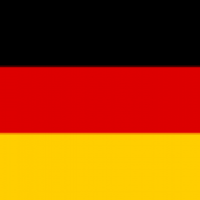Summary:
A German research institute has developed a SQUID-based (superconducting quantum interference device) noise thermometer to measure thermodynamic temperatures in the low-temperature range. The application of noise thermometers is useful as a reference thermometer at low temperatures (< 1 K), especially below 10 mK. Noise thermometers cover the entire temperature range of at least 0.9 mK to 4.2 K. The research institute is searching for licensees.
Description:
A German research institute active in metrology in Germany has developed a SQUID-based (superconducting quantum interference device) noise thermometer to measure thermodynamic temperatures in the low-temperature range.
Magnetic field fluctuation thermometers (MFFT) are SQUID-based noise thermometers used for deep temperatures (typically below 5K). They detect the fluctuations of the magnetic field on the surface of an electrically conductive body ("temperature sensor"), which are linked to the thermally excited currents flowing inside. Based on the new, fully predictable sensor, it is possible to measure thermodynamic temperature structures with the offered device, which eliminates the otherwise necessary return to the international temperature scales ITS-90 (International Temperature Scale of 1990) and PLTS-2000 (Provisional Low Temperature Scale of 2000) for the first time .
The offered device consists of four main components:
1) A metallic temperature sensor made of high purity copper
2) Two planar, gradiometric detection coils on a Si-chip which are read out by two DC SQUID power sensors
3) One planar calibration coil on a Si-chip
4) A two-channel -SQUID- electronic
The actual temperature sensor is formed by the central area of the copper body above the detection coils. At this point, the thermal magnetic flux noise is measured via two independent SQUID-gradiometers and evaluated by using the cross-correlation method, which reduces all non-thermal noise proportions. With known geometry and electrical conductivity of the sensor, the temperature can be calculated from the noise spectra.
The research institute is searching for licensees to foster the international commercial exploitation of the innovation.
Type (e.g. company, R&D institution…), field of industry and Role of Partner Sought:
Targeted partners are either active in the development of SQUID-based noise thermometer for deployment as reference thermometer in low temperatures. The institute looks for licensees.
Stage of Development:
Field tested/evaluated
Comments Regarding Stage of Development:
Devices of the current, first version are in operation and will continued to be tested. Further developments to reduce the uncertainty of the relative measurement are planned.
A patent was granted, licenses for the use of this new method are available.
IPR Status:
Granted patent or patent application essential
External code:
TODE20210416001








